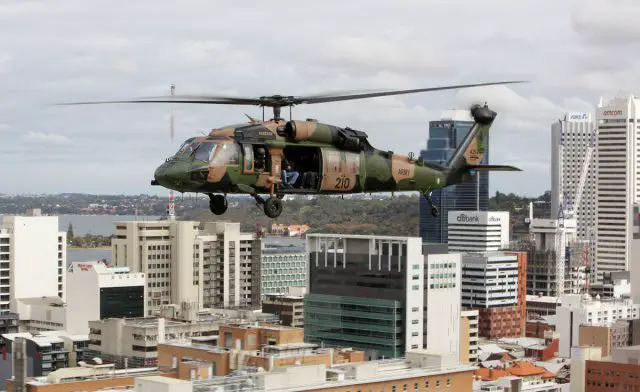Breaking news
Australian Company creates New Buoyancy System for Helicopter Emergencies.
| a | |||
| |
|||
World
Aviation Defense & Security Industry News - One Atmosphere |
|||
| Australian Company creates New Buoyancy System for Helicopter Emergencies | |||
A Western
Australian company has won a national science award for developing an
emergency buoyancy system for helicopters that crash into water. The Pegasus
buoyancy system developed by Rockingham-based One Atmosphere won the Australia
Museum Eureka Prize for Outstanding Science in Safeguarding Australia. |
|||
 The Pegasus system was developed in conjunction with the Australian Defence Forces for use with military helicopters (Pic: RAAF Sikorsky S-70A-9 Blackhawk) |
|||
The Pegasus system was developed to save the lives of crew and passengers in helicopters that either crash or have to make emergency landings in the ocean. It works by quickly generating large amounts of gas which inflate buoyancy bags that can help raise a stricken chopper to the surface. The lightweight system is specifically designed to counter the rapid increase in sea pressure as the aircraft sinks. "The way we generate our gas is virtually instantaneous and we're able to produce copious of high-pressure gas, so that pushing against an increasing sea pressure is not a problem for Pegasus," One Atmosphere managing director Tim Lyons says. "This means it can fully inflate the full volume of the bags, even if the helicopter has started to sink, and that is how it is able to arrest the sinking and return it to the surface. "It can be manually activated if the pilots need to conduct a controlled landing on water. "However, if the helicopter crashes into water, the system will automatically activate." The Pegasus system was developed in conjunction with the Australian Defence Forces for use with military helicopters. But an even bigger market involves civil applications. "The (offshore) oil and gas market is likely to be our largest market," Lyons says. He says safety is a major concern in the oil and gas sector and recent incidents in the North Sea have prompted UK authorities to introduce new safety regulations involving helicopters transporting people to and from offshore rigs. "Four choppers crashed or [were] ditched in the past four to five years which have caused 20 fatalities in the North Sea off Scotland," he says. The Pegasus system is currently undergoing airworthiness certification activities with the Australian Defence Forces and the Civil Aviation Authority. "We hope to have it ready for market within the next 18 months," Lyons says. |
|||



















